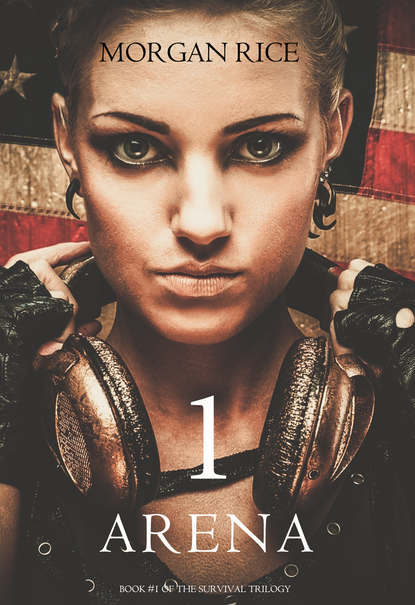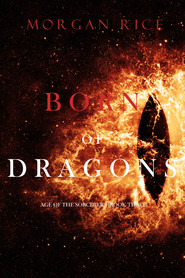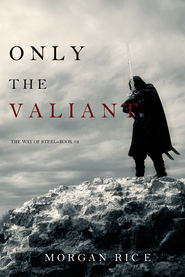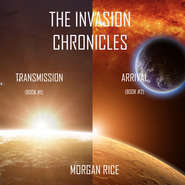По всем вопросам обращайтесь на: info@litportal.ru
(©) 2003-2024.
✖
Arena One: Slaverunners
Настройки чтения
Размер шрифта
Высота строк
Поля
At some point I lose my voice, tire myself out. Finally, I find myself slumped on the floor, against the wall, curled up.
My screams turn to sobs, and eventually, I cry myself to sleep.
* * *
I drift in and out of sleep. I lie curled up on the metal floor, resting my head in my hands, but it is so uncomfortable, I twist and turn. I have such fast, troubled dreams – of Bree being whipped as a slave, of myself being tortured in an arena – that, as exhausted as I am, I’d rather be awake.
I force myself up sit there, staring into the darkness, holding my head in my hands. I will myself to focus of anything that might take me away from this place.
I find myself thinking about life before the war. I am still trying to piece together exactly why Dad left, when he did, and why he never came back for us. Why Bree and I left. Why Mom wouldn’t come with us. Why things changed so much overnight. If there is anything I could have done differently. It is like a puzzle I return to over and over again.
I find myself thinking back to one day in particular, before the war began. The day when everything changed – for the second time.
It was a warm September day, and I was still living in Manhattan with Mom and Bree. Dad had been gone for over a year, and every day we waited for some sign of him. But there was nothing.
And while we all waited, day after day, the war grew worse. One day a blockade was declared; weeks later, they declared a conservation of water; then, food rations. Food lines became the norm. And from there things became even worse, as people grew desperate.
It became more and more dangerous to walk the streets of Manhattan. People started doing anything they could to survive, to find food and water, to hoard medicine. Looting became the norm, and order broke down more each day. I didn’t feel safe anymore. And more importantly, I didn’t feel Bree was safe, either.
Mom clung to her denial; like most people, she kept insisting things would go back to normal soon.
But they only got worse. Battles came closer to home. One day I heard distant explosions. I ran to the roof and saw, on the horizon, battles on the cliffs of New Jersey. Tank against tank. Fighter jets. Helicopters. Entire neighborhoods on fire.
And then, one horrible day, on the far horizon, I saw a tremendous explosion, one that was different from the others, one that shook our whole building. A mushroom cloud rose. That was the day I knew things would never get better. That the war would never end. A line had been crossed. We would slowly and certainly die here, trapped on the blockaded island of Manhattan. My Dad would be in battles forever. And he would never return.
The time for waiting was over. I knew that, for the first time in his life, Dad would not be true to his word, and I knew then what I had to do. It was time to make a bold move for the survival of what was left of our family. To do what he would want his daughter to do: to get us off this island, far from here, and into the safety of the mountains.
I had been pleading with Mom for months to accept the fact that Dad would not come home. But she kept insisting we couldn’t leave, that this was our home, that life would be even more dangerous outside the city. And most of all, that we couldn’t abandon Dad. What if he came home and we were gone?
She and I would argue about it every day until we were both red in the face, screaming at each other. We reached a stalemate. We ended up hating each other, barely talking to one another.
Then came the mushroom cloud. My Mom, unbelievingly, still refused to leave. But I had made up my mind. We were leaving – with or without her.
I went downstairs to get Bree. She had snuck out to scavenge for food; I allowed her this, since she never went far, and always came back within the hour. But this time, she was late; she had been gone for hours, and it was unlike her. I had a sinking feeling in my chest as I ran down flight after flight, determined to find her and get the hell out of here. In my hand I held a homemade Molotov cocktail. It was the only real weapon I had, and I was prepared to use it if need be.
I ran into the streets screaming her name, looking for her everywhere. I checked down every alley she liked to play in – but she was nowhere to be found. My dread deepened.
And then I heard a faint screaming in the distance. I recognized her voice, and I sprinted towards it.
After a few blocks, the screaming grew louder. Finally, I turned down a narrow alleyway and saw her.
Bree was standing at the end of an alley, surrounded by a group of attackers. There were six of them, teenage boys. One of them reached out and tore her shirt while another pulled her ponytail. She swung her backpack to try to fend them off, but it did little good. I could tell that in a matter of moments, they would rape her. So I did the only thing I could do: I lit the Molotov cocktail and threw it at the foot of the largest boy I could find…
I am jolted out of my memories by the sudden sound of creaking metal, a door slowly opening, of light flooding the room, then the door slamming. I hear chains, then footsteps, and sense another body near me in the blackness. I look up.
I’m relieved to see that it is Ben. I don’t know how much time has passed, or how long I’ve been sitting here. I sit up slowly.
Our cell is lit by dim, emergency bulbs, red, encased in metal, high up along the wall. It is just enough to see by. Ben stumbles into the cell, disoriented; he doesn’t even realize I’m here.
“Ben!” I whisper, my voice hoarse.
He wheels and sees me, and his eyes open wide in surprise.
“Brooke?” he asks tentatively.
I struggle to get to my feet, aches and pains tearing through every part of my body as I take a knee. Ben runs over, grabs my arm, and helps me stand up. I know I should be grateful for his help, but instead, I find myself resenting it: it is the first time he has touched me, and it was uninvited, and that makes me feel funny. Plus, I don’t like being helped by people in general – and especially by a boy.
So I shake off his arm and stand on my own.
“I can handle myself,” I snap at him, and my words come out too harsh. I regret it, wishing that, instead, I told him how I really felt. I wish I’d said: I’m happy you’re alive. I’m relieved that you’re here, with me.
As I think about it, I realize that I don’t quite understand why I am so happy to see him. Maybe I’m just happy to see another regular person like me, another survivor in the midst of all these mercenaries. Maybe it’s because we’ve both suffered through the same ordeal in the last 24 hours, or maybe because we’ve both lost our siblings.
Or maybe, I hesitate to wonder, it’s something else.
Ben stares back at me with his large blue eyes, and for a brief moment, I find myself losing my sense of time. His are eyes are so sensitive, so out of place here. They are the eyes of a poet, or painter – an artist, a tortured soul.
I force myself to look away. There’s something about those eyes that makes me unable to think clearly when I look back at them. I don’t know what it is, and that bothers me. I’ve never felt this way about a boy before. I can’t help wondering if I just feel connected to Ben because of our shared circumstance, or if it’s something else.
To be sure, there have been many moments when I was annoyed and angry with him – and I still find myself blaming him for everything that happened. For example, if I hadn’t stopped and saved him on the highway, maybe I’d have rescued Bree and been back home by now. Or if he hadn’t dropped my gun out the window, maybe I could have saved her in Central Park. And I wish he was stronger, more of a fighter. But at the same time, there is something about him which makes me feel close to him.
“I’m sorry,” he says, flustered, and his voice is already that of a broken man. “I didn’t mean to offend you.”
Slowly, I soften. I realize it’s not his fault. He’s not the bad guy.
“Where did they take you?” I ask.
“To their leader. He asked me to join them.”
“Did you accept?” I ask. My heart flutters as I wait for the answer. If he says yes, I would think so much less of him; in fact, I wouldn’t even be able to look at him again.
“Of course not,” he says.
My heart swells with relief and admiration. I know what a sacrifice that is. Like me, he has just written his own death sentence.
“Did you?” he asks.
“What do you think?” I say.
“No,” he says. “I suspect not.”
I look over and see that he cradles one of his fingers, which is bent out of shape. He looks like he’s in pain.
“What happened?” I ask.
He looks down at his finger. “It’s from the car accident.”
“Which one?” I ask, and can’t help but break into a small, wry smile, thinking of all the accidents we had in the last 24 hours.

















